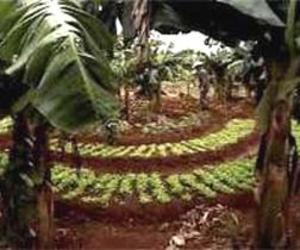Supply stores open in latest Cuba farm reform move
- Submitted by: manso
- Business and Economy
- 08 / 17 / 2010

HAVANA (Reuters) – Cuba is opening stores in the countryside where farm supplies are being sold freely for the first time as the Cuban government moves to reform and revitalize long-centralized agriculture, farmers said.
The reforms by President Raul Castro, who took over the presidency from his elder brother Fidel Castro in 2008, are also preparing to scuttle a decades-old state farm produce contracting system in a bid to increase food output and reduce costly imports, according to at least one senior official.
Raul Castro, who has also opened the door to more private initiative in retail and small manufacturing, has made food security a signature issue in his cautious efforts to revive productivity in Cuba.
The Caribbean island, badly hit by damaging 2008 hurricanes and the global economic downturn, imports 60 percent of its consumed food, a huge burden on its economy, while export crops from sugar to coffee and citrus are in tatters.
Farmers in Cuba's interior said the new direct-sale supply stores were just starting up.
"There are only eight to 10 items at the moment, but I was told eventually there would be 80," Alberto, a farmer in central Camaguey province who bought two machetes and a sharpener at one of the stores, said in a telephone interview.
The stores -- with their current offerings of picks, hoes, shovels, machetes, work clothes and gloves -- are basic in their range of goods and a far cry from local hardware shops in many countries, reflecting both Cuba's poor manufacturing and lack of foreign exchange to purchase supplies abroad.
"What's important is that they are beginning. I hope that little by little we will be able to purchase the indispensable equipment and supplies that we need," said Alberto, asking like other farmers that his last name not be used.
In Cuba's long-centralized agriculture system, farmers must produce certain crops or livestock to sell back to the state at fixed prices in exchange for state-assigned supplies.
Farmers and consumers complain the cumbersome system sometimes results in rotting crops and farmers going without timely supplies of animal feed, pesticides and fertilizer.
Some Cuban economists say the state's monopoly over farm supplies and output holds back production because it does not reward better farmers and penalize unproductive ones, providing little incentive for development or improvement.
They have called for more market mechanisms to provide farmers with timely supplies and distribute farm products.
MOVE TO DECENTRALIZE
President Castro has already opened stores where farmers can purchase rudimentary tools and supplies with state coupons they receive in exchange for their products, but these will apparently be replaced by the new outlets where anyone can purchase goods at will in the local currency.
"I went to buy some fencing, but was told for now it was only available in the coupon store and I do not have enough to buy what I need," said another farmer, Roberto, from eastern Holguin province.
In his reforms so far, Castro has boosted what the state pays for produce, leased state lands to farmers, decentralized decision-making and allowed farmers to sell more of their produce directly to consumers, though often at fixed prices.
Economy Minister Marino Murillo announced in May that the government had approved a five-year plan to modernize the economy and "create in the majority of municipalities supply markets where farmers can acquire directly the necessary resources to produce, substituting the current system of assigning resources centrally."
Family farmers and private cooperatives are by far the largest private sector in the country where the state controls the bulk of economic activity.
These 500,000 farmers, who account for 70 percent of the food produced using just 41 percent of the land, have pushed for more freedom to sell their produce and obtain supplies.
(Editing by Pascal Fletcher and Jerry Norton)
By Marc Frank Marc Frank – Mon Aug 16, 12:34 pm ET
Source: http://news.yahoo.com/s/nm/20100816/wl_nm/us_cuba_farm_reform_1;_ylt=Aos...
Comments